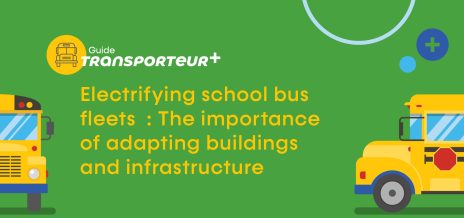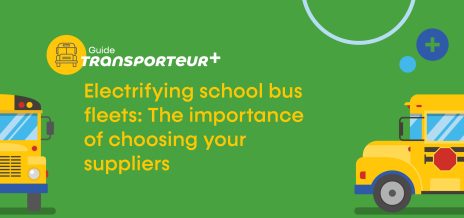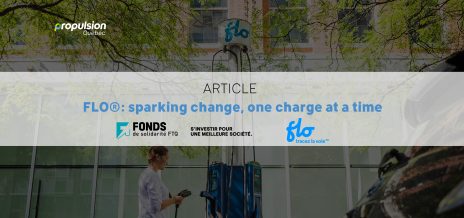Intelligent fleet management at the heart of free-floating carsharing

The objective of companies and organizations to update their fleets with electric vehicles is extremely encouraging. But nothing is better for the environment than to question the size of the fleet. Indeed, the streets of our cities are saturated with vehicles and everyone must do their part to eliminate vehicles on the road, including businesses and organizations. Integrating market solutions such as SHARE NOW into the transportation options offered to employees for business travel is undoubtedly one way to achieve this.
In addition to reducing the use and the size of their own fleet, it also allows companies or organizations to facilitate the transport of their employees. For example, they can go to a meeting and then park the car in front of their house. No need to go back to work to return the car. When traveling on business to other SHARE NOW cities, they can easily use the service directly at the airport and avoid time wasted at the rental counter picking up and returning a vehicle.
All in all, SHARE NOW helps businesses be greener, better serve their employees, and save money. According to our recent researches:
- Reducing the corporate fleet by 5 vehicles can save costs upwards $46,000 USD / $62,300 CAD per year
- The average annual cost of parking is upwards of $3,880 USD / $3,440 CAD per vehicle. Using SHARE NOW saves those costs because they are included at all times
- Business travelers spend upwards of $ 5,000 USD per year on ground transportation (ride-hailing, rental cars, parking and gasoline). Using SHARE NOW instead would have cost less than $ 1,000 USD
Integrating a free-floating carsharing option easily puts businesses in control of the money they spend to get from Point A to Point B and offers flexibility to redirect savings to where it’s needed most. Savings could be used to hire new employees, invest in new product lines or directly add dollars to a business’ bottom-line.
Hélène Mercier Brûlotte
General Manager SHARE NOW in Montreal
The objective of companies and organizations to update their fleets with electric vehicles is extremely encouraging. But nothing is better for the environment than to question the size of the fleet. Indeed, the streets of our cities are saturated with vehicles and everyone must do their part to eliminate vehicles on the road, including businesses and organizations. Integrating market solutions such as SHARE NOW into the transportation options offered to employees for business travel is undoubtedly one way to achieve this.
In addition to reducing the use and the size of their own fleet, it also allows companies or organizations to facilitate the transport of their employees. For example, they can go to a meeting and then park the car in front of their house. No need to go back to work to return the car. When traveling on business to other SHARE NOW cities, they can easily use the service directly at the airport and avoid time wasted at the rental counter picking up and returning a vehicle.
All in all, SHARE NOW helps businesses be greener, better serve their employees, and save money. According to our recent researches:
- Reducing the corporate fleet by 5 vehicles can save costs upwards $46,000 USD / $62,300 CAD per year
- The average annual cost of parking is upwards of $3,880 USD / $3,440 CAD per vehicle. Using SHARE NOW saves those costs because they are included at all times
- Business travelers spend upwards of $ 5,000 USD per year on ground transportation (ride-hailing, rental cars, parking and gasoline). Using SHARE NOW instead would have cost less than $ 1,000 USD
Integrating a free-floating carsharing option easily puts businesses in control of the money they spend to get from Point A to Point B and offers flexibility to redirect savings to where it’s needed most. Savings could be used to hire new employees, invest in new product lines or directly add dollars to a business’ bottom-line.
Hélène Mercier Brûlotte
General Manager SHARE NOW in Montreal
A leader in free-floating carsharing, SHARE NOW (formerly car2go) has over four million members and 60,000 corporate customers in 31 major cities around the world. With a fleet of more than 20,000 vehicles, including 3,200 electric units that can be rented anywhere at any time, SHARE NOW has been innovating vehicle rental for over 10 years now. From registration to rental, absolutely everything is digital and automated.
A crucial aspect of the business model of our free-floating company is undoubtedly a smart, efficient and optimized fleet management. To be profitable, one must move the most people with the fewest vehicles. In order to maximize the rental opportunities of our vehicles and meet the requirements of our customers to always have a car for rent nearby, we develop unparalleled operational expertise.
One of the great benefits we have at SHARE NOW is that our fleet is connected, so we can optimize our operations with data, often in real time:
- We are able to predict the demand and therefore move the vehicles where they will be rented ;
- We carry out a constant monitoring of maintenance needs and assign the tasks for gasoline, repairs, and tire change to maximize the time our vehicles are available ;
- We aggregate third-party data to coordinate with snow removal operations and respect on-street parking bans ;
- We are constantly increasing the data collected by our connected fleet to refine our customer experience strategies, increase security, and limit the damage that can be done to vehicles.
In our business model, one of the challenges we have is the electrification of the fleet since the recharge time means a loss of potential rental income. However, 18 out of our 31 city fleets utilize electric vehicles, four of which are completely electric, so our expertise in managing fleets is significant. Therefore, we can be a major partner for cities seeking to establish infrastructure for shared electric mobility.
SHARE NOW, a sustainable and economic mobility solution for businesses and organizations
The objective of companies and organizations to update their fleets with electric vehicles is extremely encouraging. But nothing is better for the environment than to question the size of the fleet. Indeed, the streets of our cities are saturated with vehicles and everyone must do their part to eliminate vehicles on the road, including businesses and organizations. Integrating market solutions such as SHARE NOW into the transportation options offered to employees for business travel is undoubtedly one way to achieve this.
In addition to reducing the use and the size of their own fleet, it also allows companies or organizations to facilitate the transport of their employees. For example, they can go to a meeting and then park the car in front of their house. No need to go back to work to return the car. When traveling on business to other SHARE NOW cities, they can easily use the service directly at the airport and avoid time wasted at the rental counter picking up and returning a vehicle.
All in all, SHARE NOW helps businesses be greener, better serve their employees, and save money. According to our recent researches:
- Reducing the corporate fleet by 5 vehicles can save costs upwards $46,000 USD / $62,300 CAD per year
- The average annual cost of parking is upwards of $3,880 USD / $3,440 CAD per vehicle. Using SHARE NOW saves those costs because they are included at all times
- Business travelers spend upwards of $ 5,000 USD per year on ground transportation (ride-hailing, rental cars, parking and gasoline). Using SHARE NOW instead would have cost less than $ 1,000 USD
Integrating a free-floating carsharing option easily puts businesses in control of the money they spend to get from Point A to Point B and offers flexibility to redirect savings to where it’s needed most. Savings could be used to hire new employees, invest in new product lines or directly add dollars to a business’ bottom-line.
Hélène Mercier Brûlotte
General Manager SHARE NOW in Montreal
This partner content was produced for Impulsion MTL 2019 – The International Fleet Management Forum.
Continue reading on this subject

The challenges of designing a 40-tonne, 100% electric mining vehicle for open-pit mines
Partnerships and implications The partners involved in the development of a 100% electric Quebec mining vehicle were all eager to be involved with the project from the outset, for a variety of reasons. NRC’s Eddy Zuppel explained their contribution: “Before starting the project, it was important to model and simulate the vehicle’s route in order […]
Read more
Energy efficiency: Financial support to put your ideas into action
Leading a company involves balancing several priorities at the same time. Energy efficiency? It’s an important issue—one of many! What if we gave you what you need to make energy efficiency a driving force behind your company’s performance and profitability? The good news is, Hydro-Québec offers financial assistance and guidance to help you balance performance and energy efficiency.
Read more
My Consumption Profile: data that lets you strategically manage your electricity use
Companies have a critical role to play in the energy transition. Knowing that energy efficiency factors big into profitability, your organization will benefit from strategically managing its electricity use. The key? Your data!
Read more
Electrifying school bus fleets : Grants available to support your project
In this series of articles, we demystify the key steps of converting your school bus fleet to electric power thanks to the Transporteur+ guide. This guide aims to provide easy and direct access to resources to clarify the steps, issues, conditions and facilitating measures for a successful transition to electrification.
Read more
Electrifying school bus fleets | Key step : Comissioning
In this series of articles, we demystify the key steps of converting your school bus fleet to electric power thanks to the Transporteur+ guide. This guide aims to provide easy and direct access to resources to clarify the steps, issues, conditions and facilitating measures for a successful transition to electrification.
Read more
FINANCING | $50 million from Finalta Capital in non-dilutive financing dedicated to the Electric and Smart Transportation sector
Fast growing, innovative companies from the electric and smart transportation (EST) sector in Québec take advantage of the $50 million in funding dedicated to the EST ecosystem by Finalta Capital, one of Canada’s largest funds specialized in non-dilutive tax credit and government grant financing, announced in March 2023 as part of the Impulsion conference, the International EST Summit organized by Propulsion Québec.
Read more
Demand response: Save money by using hydro at the right times
If you could lower your company's hydro bill while contributing to the collective effort to support Quebec’s energy transition, would you? Yes, most likely! How? By curbing power demand for buildings and equipment during peak demand events.
Read more
Electrifying school bus fleets : The importance of adapting buildings and infrastructure
In this series of articles, we demystify the key steps of converting your school bus fleet to electric power thanks to the Transporteur+ guide. This guide aims to provide easy and direct access to resources to clarify the steps, issues, conditions and facilitating measures for a successful transition to electrification.
Read more
Electrifying school bus fleets : Implementing the pilot project and phase-in
In this series of articles, we demystify the key steps of converting your school bus fleet to electric power thanks to the Transporteur+ guide. This guide aims to provide easy and direct access to resources to clarify the steps, issues, conditions and facilitating measures for a successful transition to electrification
Read more
Electrifying school bus fleets: The importance of choosing your suppliers
In this series of articles, we demystify the key steps of converting your school bus fleet to electric power thanks to the Transporteur+ guide. This guide aims to provide easy and direct access to resources to clarify the steps, issues, conditions and facilitating measures for a successful transition to electrification.
Read more
The key to a successful school bus fleet electrification project
In this series of articles, we demystify the key steps of converting your school bus fleet to electric power thanks to the Transporteur+ guide. This guide aims to provide easy and direct access to resources to clarify the steps, issues, conditions and facilitating measures for a successful transition to electrification.
Read more
FLO®: sparking change, one charge at a time
FLO became a leader in electric vehicle (EV) charging in North America by integrating the process from start to finish: manufacturing charging stations, developing software and managing its network. To stay ahead of the curve in a fast-moving, innovation-driven market, the company turned to the Fonds de solidarité FTQ to support its growth.
Read more




